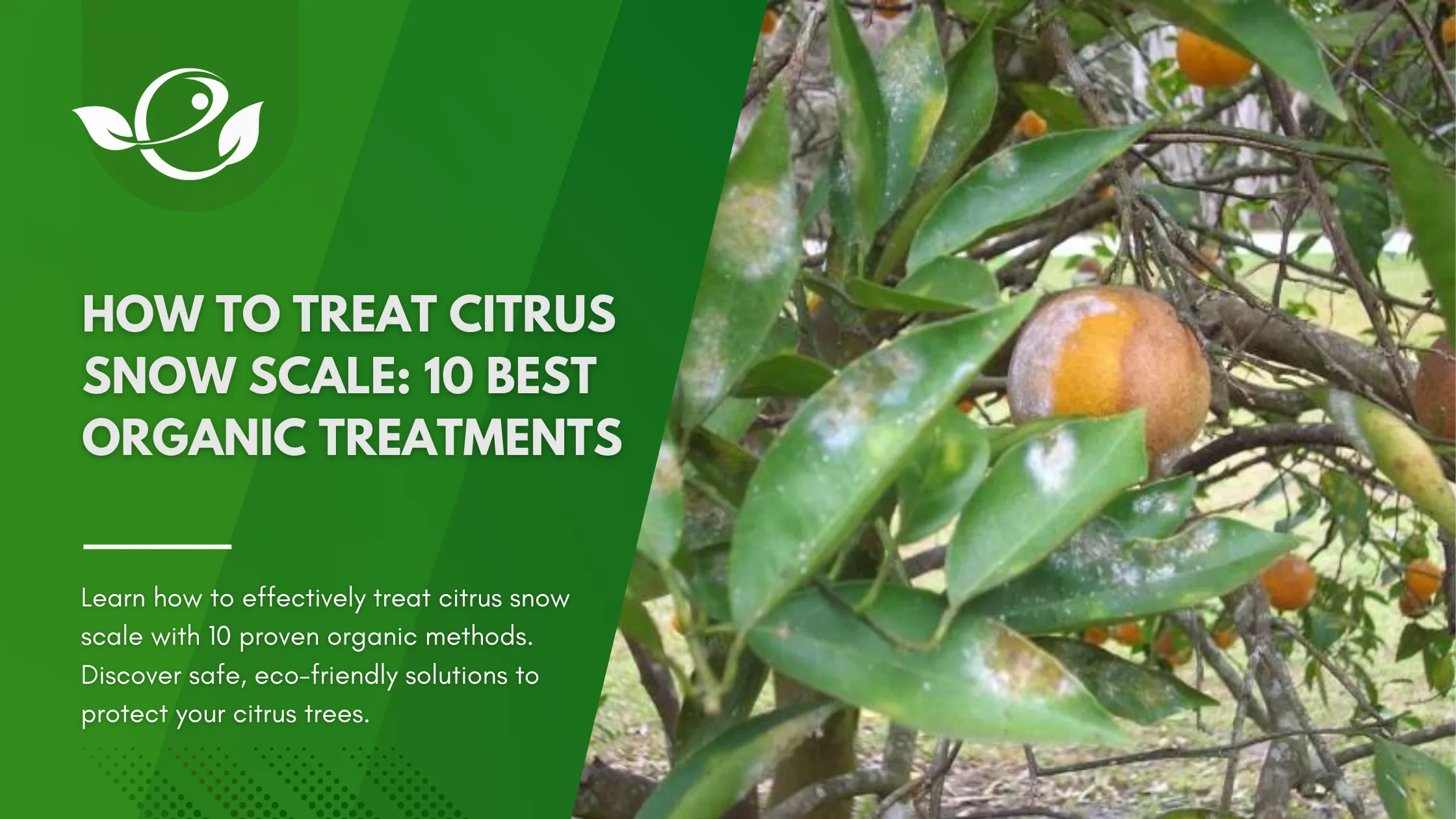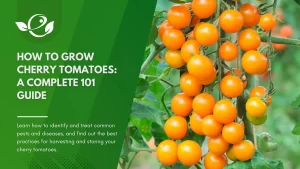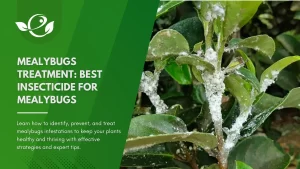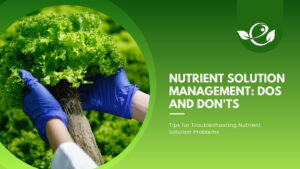Table of Contents
Citrus trees are one of the most rewarding plants to grow, providing not only a beautiful addition to any garden but also a rich harvest of fruits. However, maintaining the health of these trees can be a challenge, especially when pests like citrus snow scale invade. This tiny, yet highly destructive insect can severely damage citrus trees, stunting growth and even reducing fruit yields. Citrus snow scale may seem like a small nuisance, but without proper management, its infestation can become a significant problem.
While many chemical treatments exist for pest control, they often come with environmental risks, including harm to beneficial insects and the soil’s health. Thankfully, a wide range of organic treatments can combat citrus snow scale effectively while maintaining ecological balance. This guide will explore the 10 best organic treatments to tackle citrus snow scale, providing detailed methods and tips to ensure your citrus trees thrive without compromising environmental health.
Identifying Citrus Snow Scale
Appearance
Before diving into treatment options, it’s essential to understand what citrus snow scale looks like and how to spot an infestation.
Citrus snow scale, scientifically known as Unaspis citri, is a small insect covered in a waxy, white coating that resembles snow, hence its name. These insects attach themselves to the bark and leaves of citrus trees, feeding on plant sap. The female scales are stationary and form dense colonies, making them easy to spot, while the male scales are smaller and more mobile.
Lifecycle
Citrus snow scale undergoes a lifecycle consisting of three stages:
- Crawlers – The young, mobile stage, where the scale actively seeks a feeding site on the tree.
- Nymphs – As they settle, they develop a waxy coating and begin feeding.
- Adults – Females remain attached to the tree, forming clusters, while males can fly to mate with females.
Understanding the lifecycle helps determine the best time to apply treatments.
Signs of Infestation
An infestation of citrus snow scale is marked by several key symptoms:
- Yellowing or stunted leaves.
- Waxy, white spots on the tree’s bark and branches.
- Reduced fruit production.
- White masses of male scales on fruit.
- Yellow spotting on the underside of leaves.
- Premature dropping of leaves.
- Branch dieback, especially in severe cases.
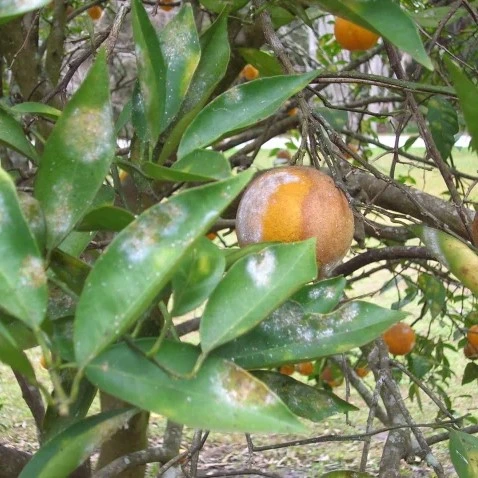
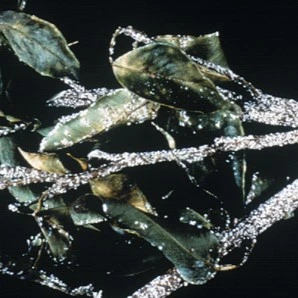
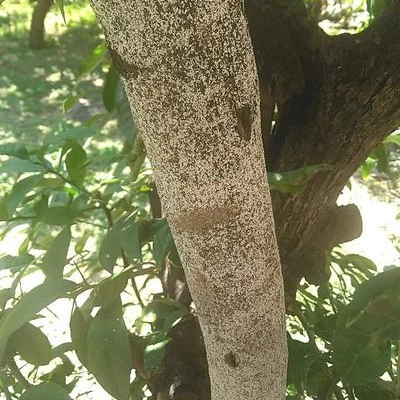
Why Choose Organic Treatments?
Organic treatments for citrus snow scale are not only effective but are also safer for the environment, beneficial insects, and even the overall health of your citrus tree. Here’s why you should prioritize organic methods:
- Environmental Safety: Organic treatments are biodegradable and don’t contaminate the soil or water supply.
- Preserve Beneficial Insects: Ladybugs, parasitic wasps, and other natural predators play a significant role in pest control. Chemical treatments often kill these helpful insects, while organic methods target the pests without affecting the good bugs.
- Human and Pet Friendly: Many chemical pesticides can be harmful to humans and pets. Organic treatments pose little to no risk in this regard.
Now, let’s explore the 10 best organic treatments to eliminate citrus snow scale and keep your trees healthy and productive.
10 Best Organic Treatments for Citrus Snow Scale
1. Neem Oil
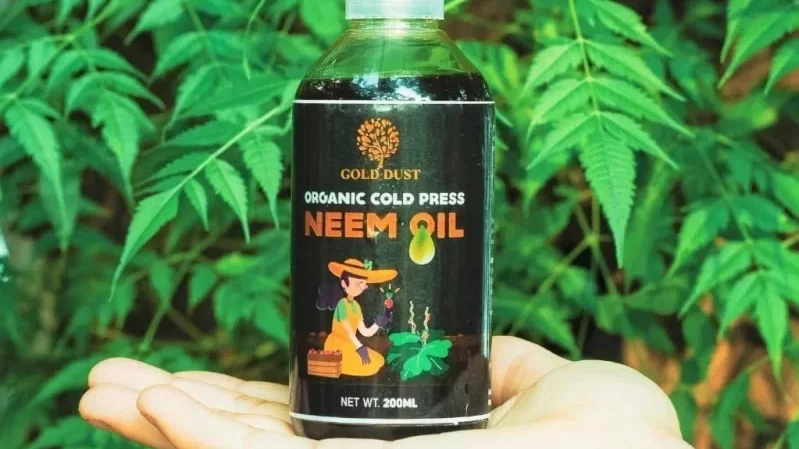
Neem oil, extracted from the seeds of the neem tree, is one of the most effective and widely used organic insecticides. It contains azadirachtin, a compound that interferes with the growth and reproduction of many pests, including citrus snow scale.
How It Works:
Neem oil works by suffocating the scale insects and disrupting their feeding patterns, preventing them from developing into adulthood and laying eggs.
Application:
- Mix 2 tablespoons of neem oil with a gallon of water.
- Add a few drops of mild soap to help the oil adhere to the plant.
- Spray the solution thoroughly on the affected branches, ensuring coverage on both the top and underside of the leaves.
Benefits:
- Safe for beneficial insects when used properly.
- It can be used during both the dormant and growing seasons.
2. Horticultural Oils
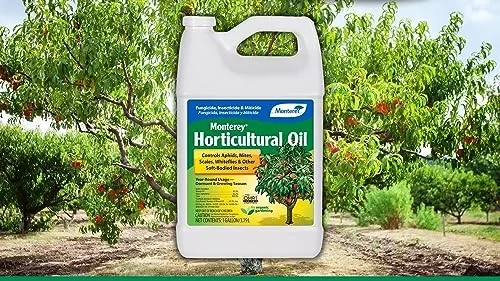
Horticultural oils are another great organic option, commonly made from highly refined mineral or vegetable oils. These oils coat the scales, suffocating them and disrupting their feeding.
How It Works:
When applied, horticultural oils form a thin layer on the insect, blocking their breathing pores (spiracles) and preventing them from feeding or growing.
Application:
- Mix the oil according to the manufacturer’s instructions.
- Apply during cooler periods, such as early morning or late afternoon, to avoid leaf burn.
- It’s most effective during the crawler stage of the citrus snow scale, so apply it when new scales are emerging.
Benefits:
- Safe for most plants and insects when used in recommended concentrations.
- Can be used as a preventative measure during dormant seasons.
3. Insecticidal Soap
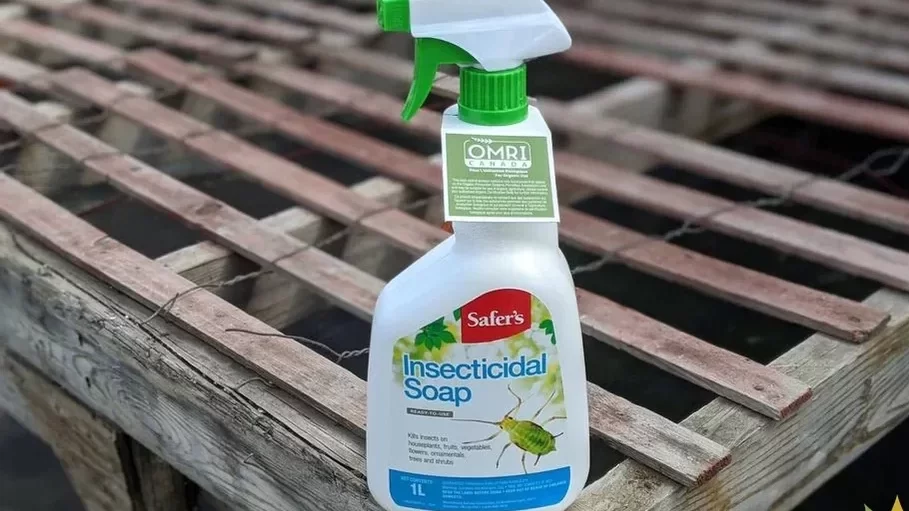
Insecticidal soap is a natural product made from potassium salts of fatty acids. It penetrates the outer coating of soft-bodied insects, causing them to dehydrate and die.
How It Works:
The soap disrupts the cellular structure of the scale insects, effectively killing them without harming plants or beneficial insects.
Application:
- Dilute 5 tablespoons of insecticidal soap in a gallon of water.
- Spray the solution directly onto the scales, focusing on areas with heavy infestations.
- Reapply every 7-10 days, especially during the crawler stage.
Benefits:
- Non-toxic to humans, pets, and wildlife.
- Safe for use on a wide variety of plants.
4. Beneficial Insects
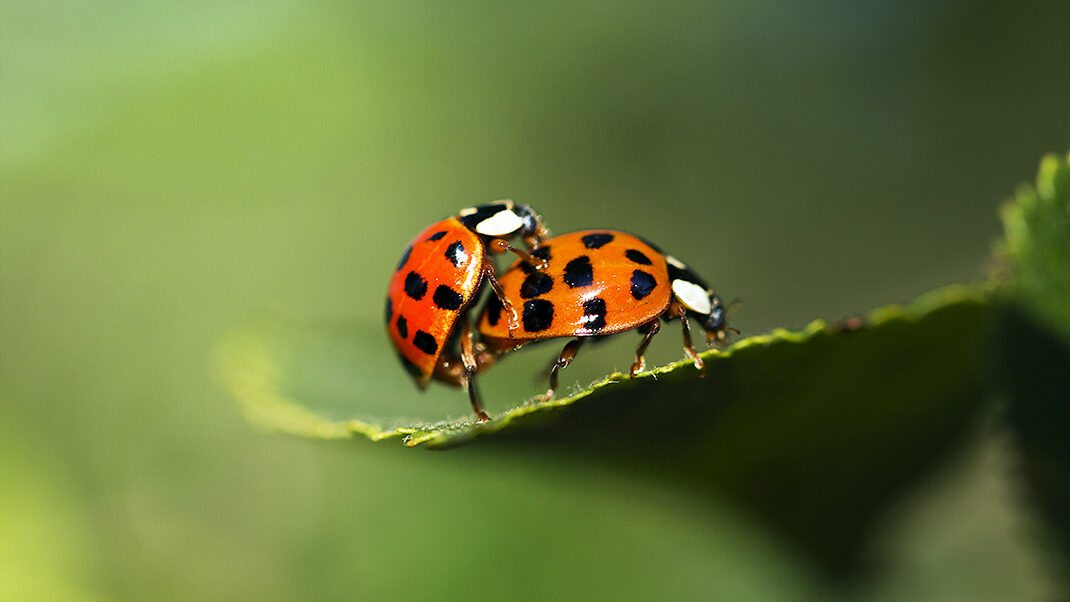
Encouraging or introducing beneficial insects is a natural way to manage citrus snow scale populations. Ladybugs, lacewings, and parasitic wasps are natural predators of scale insects.
How It Works:
These beneficial insects actively hunt and feed on citrus snow scale, naturally controlling their populations.
Application:
- Release beneficial insects like Aphytis melinus (a parasitic wasp) into your garden.
- Avoid using broad-spectrum insecticides that could harm these natural predators.
Benefits:
- No need for chemical or manual interventions.
- Creates a balanced ecosystem in your garden.
5. Pruning Infested Branches
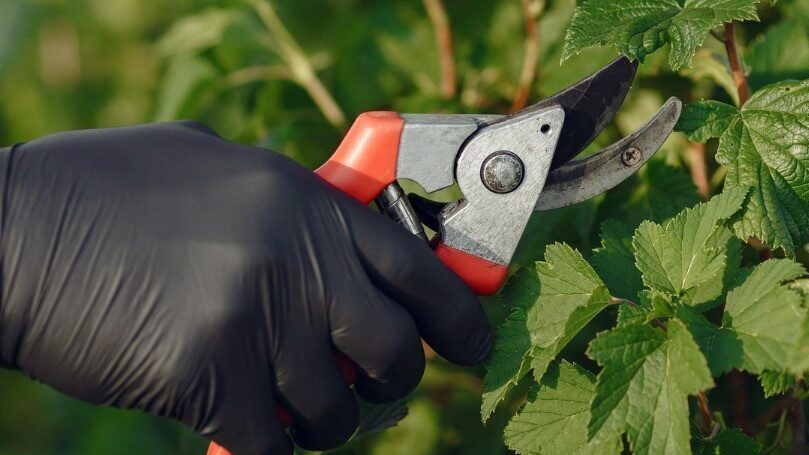
Pruning is a simple yet effective method to control heavy infestations of citrus snow scale. Removing heavily infested branches prevents the scale from spreading to healthy parts of the tree.
How It Works:
By cutting off infested areas, you immediately remove the bulk of the population, giving other treatments a chance to target smaller infestations.
Application:
- Use clean, sharp pruning shears to cut off affected branches.
- Dispose of the pruned material away from your garden to prevent re-infestation.
Benefits:
- Immediate reduction in the scale population.
- Improves airflow and sunlight exposure to the tree.
6. Diatomaceous Earth
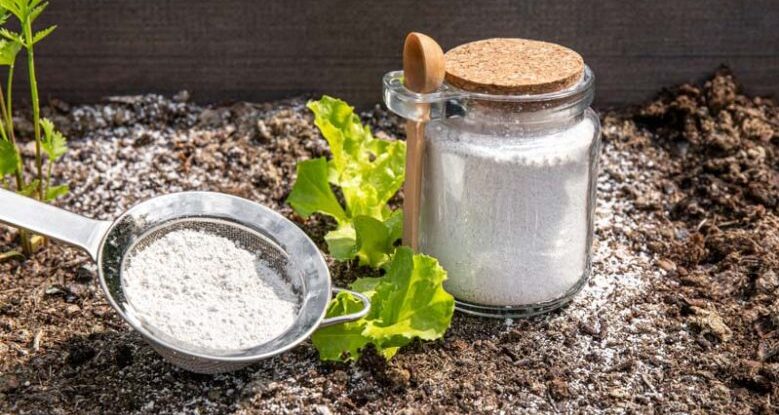
Diatomaceous earth is a naturally occurring, silica-based powder that dehydrates insects by damaging their exoskeletons.
How It Works:
When applied to areas where scale insects reside, the sharp particles in diatomaceous earth puncture the insects’ outer layers, causing them to lose moisture and die.
Application:
- Dust diatomaceous earth on the branches and base of the tree.
- Reapply after rain or heavy dew to maintain effectiveness.
Benefits:
- Non-toxic to humans, pets, and beneficial insects.
- Effective for long-term pest control.
7. Alcohol Spray
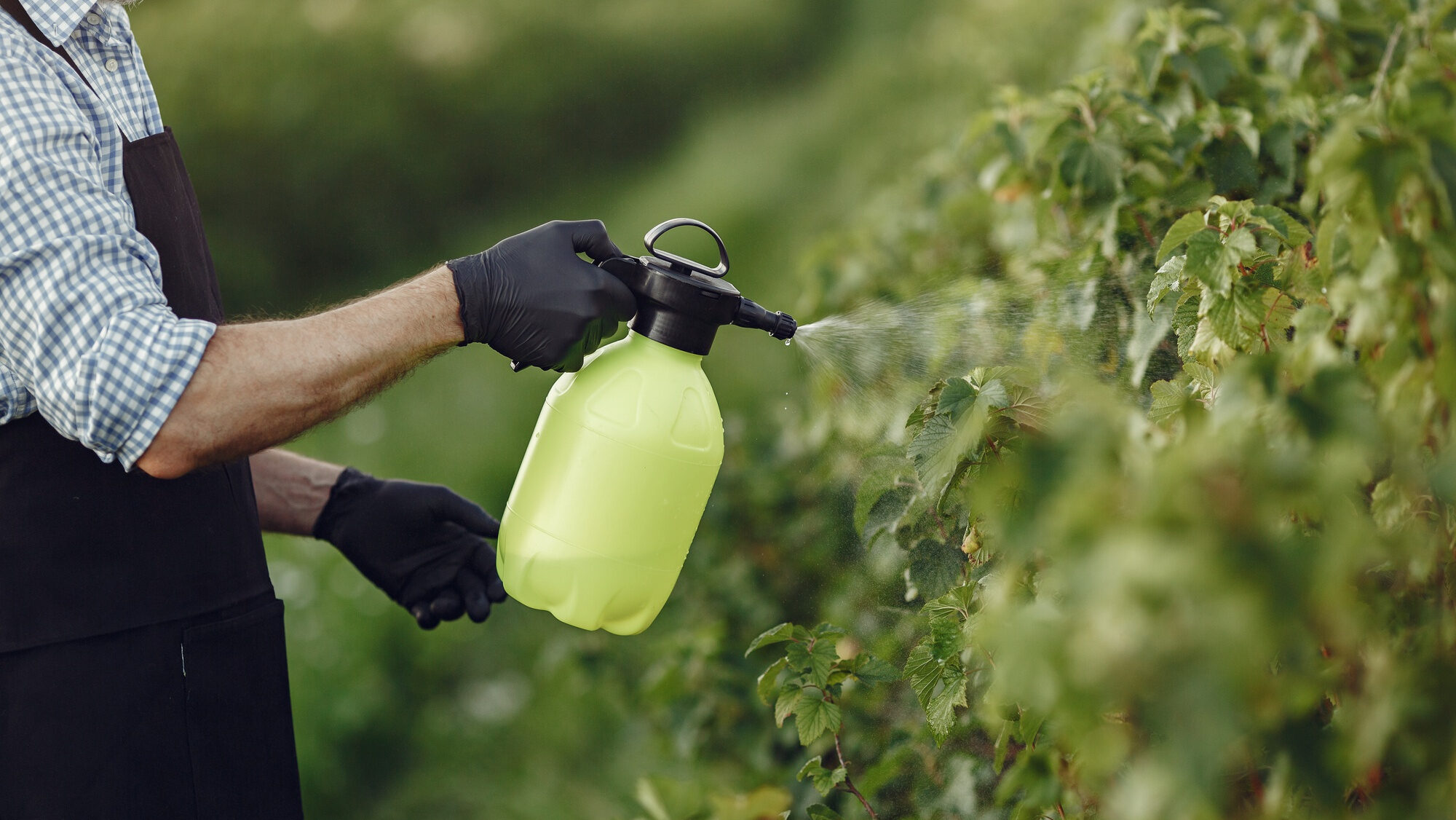
Rubbing alcohol, diluted with water, can be an effective home remedy for killing citrus snow scale. The alcohol dissolves the protective waxy coating, dehydrating the scale insects.
How It Works:
Alcohol breaks down the outer shell of the scale insects, causing them to dry out and die within hours.
Application:
- Mix one part rubbing alcohol with two parts water.
- Spray the solution directly on the scale insects.
- Be cautious not to oversaturate the leaves to avoid leaf burn.
Benefits:
- Cheap and easy to make at home.
- Kills scales on contact without harming the tree.
8. Garlic and Chili Pepper Spray
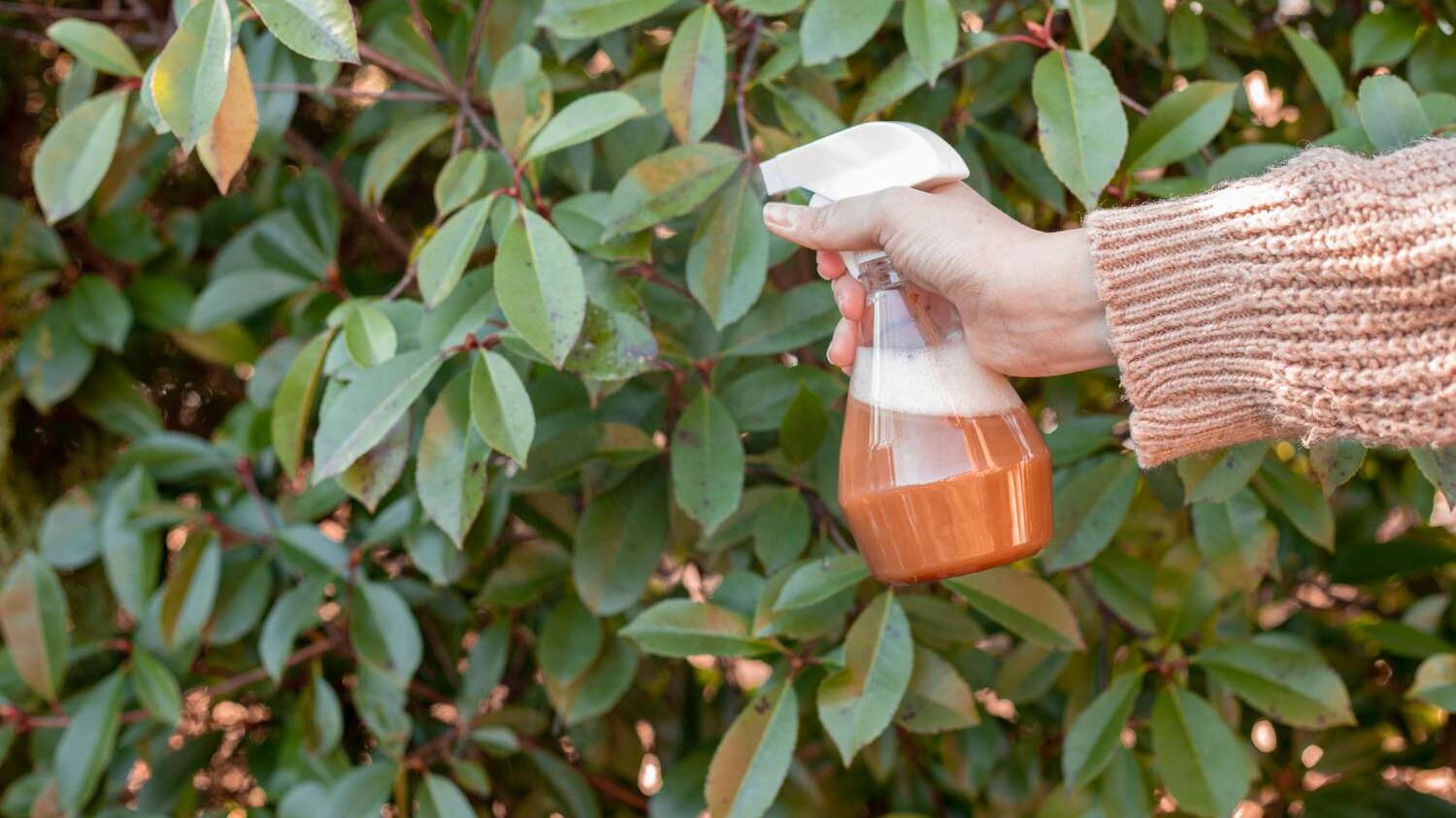
This homemade insecticidal spray is a potent natural remedy for citrus snow scale. Garlic contains sulfur compounds that repel pests, while chilli peppers irritate and discourage feeding.
How It Works:
The strong smell and compounds in garlic and chili pepper work as a repellent, while also killing scale insects upon direct contact.
Application:
- Crush 10 garlic cloves and mix with 2 tablespoons of chilli powder in a gallon of water.
- Strain the mixture and spray it on the affected areas.
Benefits:
- Repels a variety of pests.
- Non-toxic and easy to make.
9. Homemade Citrus Oil Spray
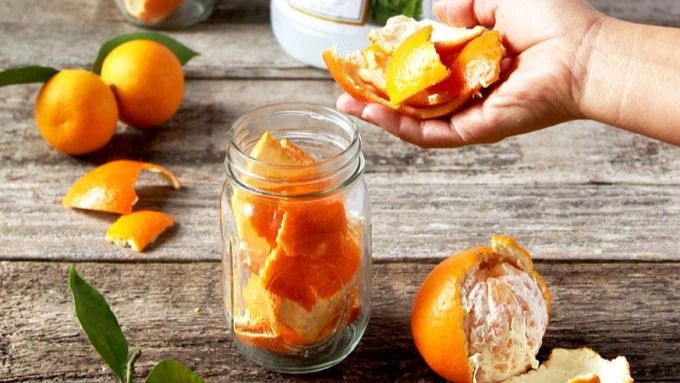
Citrus oil, especially when combined with soap, is another effective treatment for citrus snow scale. The oil smothers the insects, while the soap helps the oil adhere to the tree.
How It Works:
The oil suffocates the scale insects, while the soap breaks down their protective coating.
Application:
- Mix 2 teaspoons of citrus oil with a few drops of mild soap in a gallon of water.
- Spray the solution on the affected branches and leaves.
Benefits:
- Effective against a wide range of pests.
- Provides a natural, pleasant scent to the garden.
10. Compost Tea
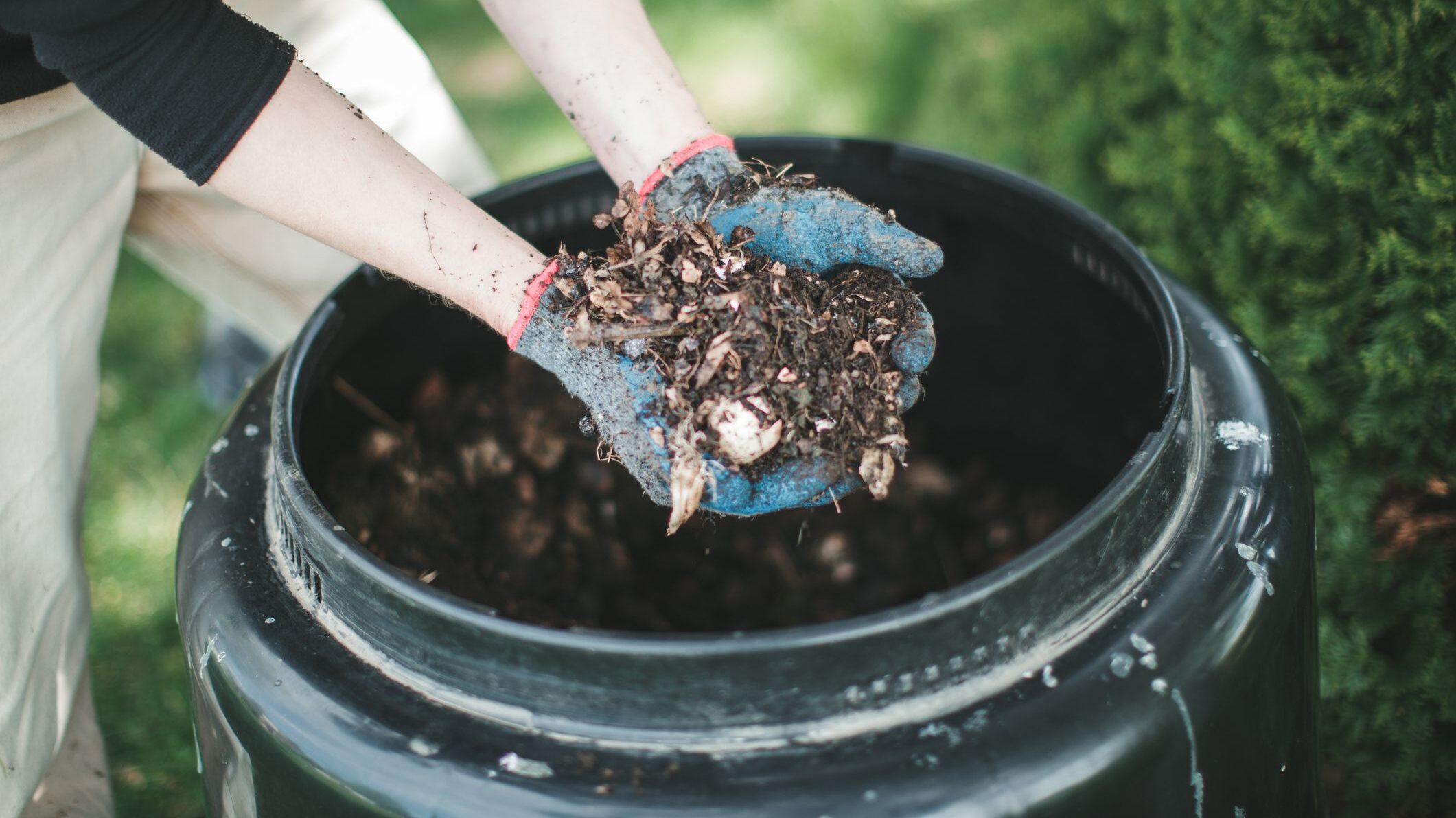
Compost tea is a liquid produced by steeping compost in water. It helps improve plant health, boosting their resistance to pests like citrus snow scale.
How It Works:
Compost tea strengthens the plant’s immune system, making it less susceptible to infestations.
Application:
- Soak compost in water for 24-48 hours.
- Spray the liquid on the tree’s leaves and soil to provide nutrients and pest resistance.
Benefits:
- Promotes overall plant health.
- Boosts natural resistance to pests and diseases.
Bonus Tips
The parasitic wasp Aphytis lingnanensis is effective in helping to control the Citrus Snow Scale if it is already established within the grove. Use lime sulfur (polysulfide sulfur) or wettable sulfur, then leave at least 30 days between spraying lime sulfur and sprays of oil. However, lime sulfur could adversely affect Aphytis lingnanensis.
The beetle Chilocorus circumdatus has also been shown to be a successful biological control agent. White oil, soap and horticultural oil sprays work by blocking the breathing holes of insects causing suffocation and death. Spray the undersides of leaves, the oils must contact the insects. A second application of soap or oils may be necessary after 3-4 weeks. The effectiveness of biological control agents may be reduced with the application of chemical control agents.
Read Also: Citrus Canker Disease Treatment Symptoms
Prevention Tips for Citrus Snow Scale
Preventing citrus snow scale infestations is just as important as treating them. Here are some key strategies:
- Monitor Regularly: Keep an eye on your citrus trees for early signs of scale infestation.
- Encourage Beneficial Insects: Maintain a healthy population of predators like ladybugs and parasitic wasps.
- Keep Trees Healthy: A healthy tree is less likely to suffer from infestations. Ensure your citrus trees get enough water, sunlight, and nutrients.
When to Call a Professional
While organic treatments are highly effective, severe infestations may require professional help. If your citrus tree is experiencing widespread dieback, and organic methods aren’t reducing the scale population, it might be time to consult an expert. Organic pest control professionals can provide more advanced treatments while still adhering to environmentally friendly practices.
Conclusion
Citrus snow scale doesn’t have to ruin the health of your citrus trees. With the right combination of organic treatments—like neem oil, beneficial insects, and horticultural oils—you can effectively manage and prevent infestations. Not only do these methods ensure the safety of your plants and the environment, but they also promote long-term health and productivity for your citrus trees. By taking a proactive approach and using the organic treatments outlined in this guide, you’ll be able to maintain a vibrant, pest-free garden for years to come.
